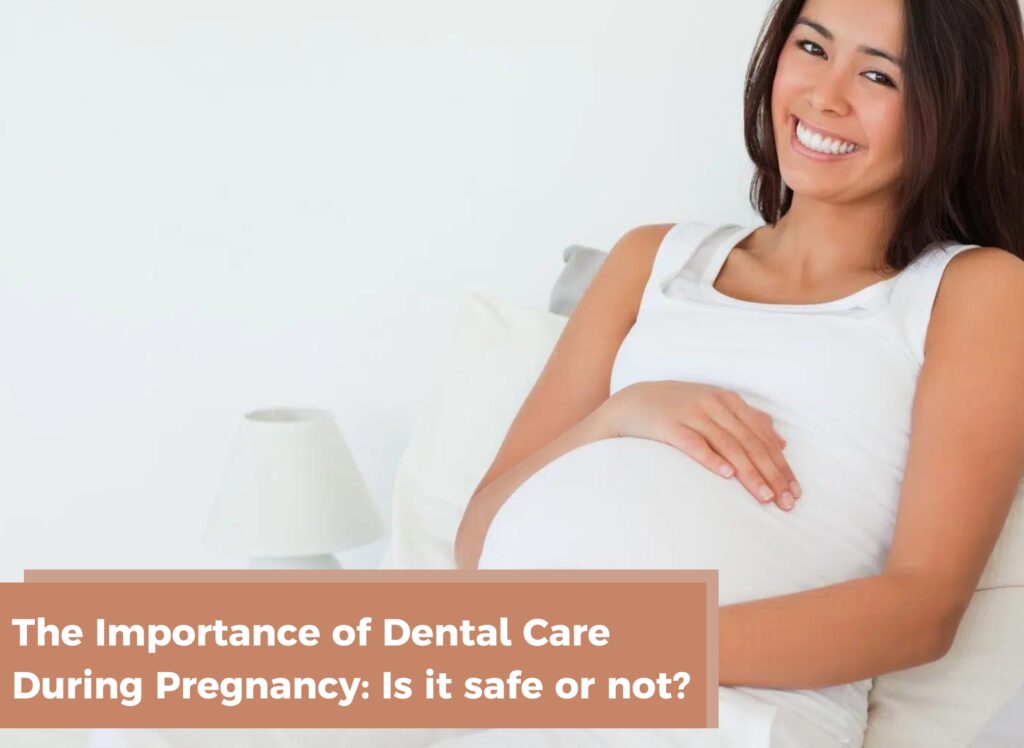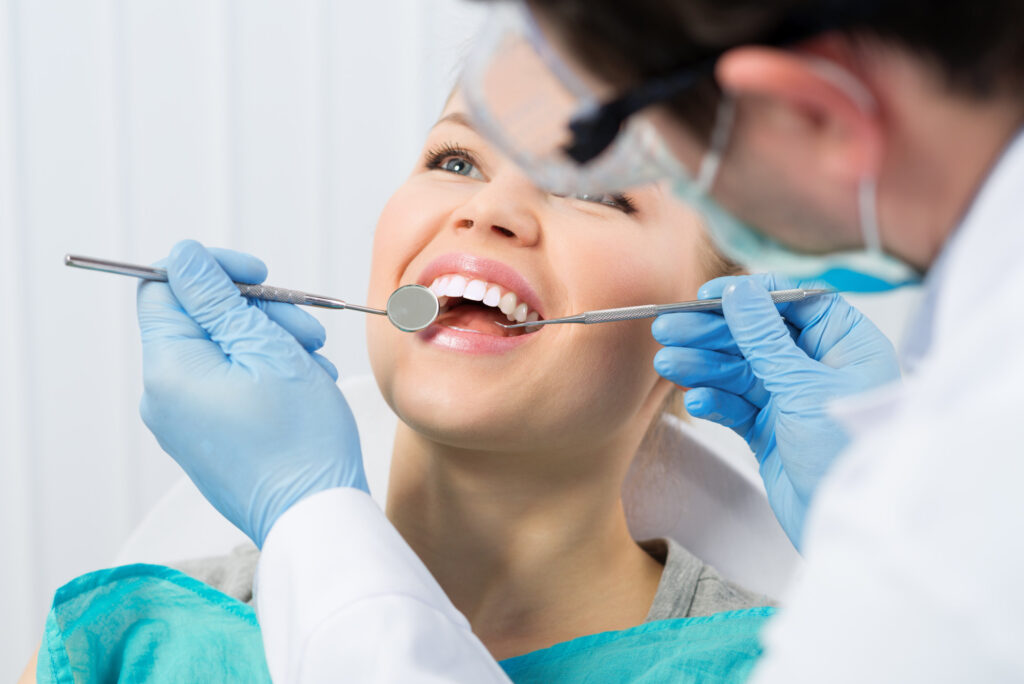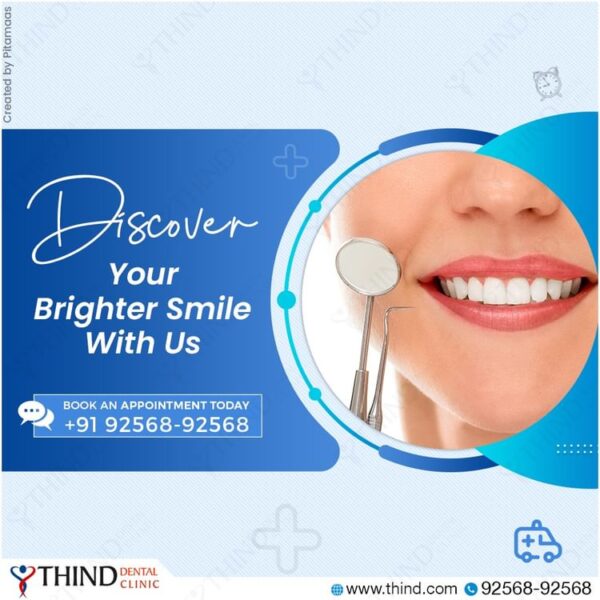Pregnancy is a beautiful and transformative journey, but it also comes with a lot of questions and concerns, including proper healthcare. Taking care of your oral health is essential during pregnancy, as hormonal changes can affect your dental health. Many expectant moms are unsure if going to the dentist while pregnant is safe. In this article, we will explore the importance of dental care during pregnancy, address common concerns, and guide visiting the dentist for a healthy and radiant smile.
1. The Importance of Dental Care During Pregnancy
Both the expectant mother and the baby need to have good dental health. Hormonal changes during pregnancy can lead to an increased risk of gum disease, tooth decay, and other oral health issues. Poor oral health has been associated with complications such as preterm birth and low birth weight. Therefore, it is essential to prioritize dental care and maintain regular dental check-ups to ensure a healthy mouth and overall well-being for both mother and baby.
During pregnancy, the body undergoes various hormonal changes, including an increase in estrogen and progesterone levels. These hormonal shifts can affect the gums, making them more susceptible to inflammation and infection. This condition, known as pregnancy gingivitis, can cause redness, swelling, and tenderness of the gums, as well as bleeding during brushing or flossing. If left untreated, pregnancy gingivitis can progress to a more severe form of gum disease called periodontitis.
2. Safety of Dental Treatments During Pregnancy
Visiting the dentist during pregnancy is generally safe, and many routine dental procedures can be performed without any harm to the mother or the baby. However, it is important to inform your dentist about your pregnancy and any specific concerns or medical conditions you may have. This allows the dentist to provide appropriate care and make necessary adjustments to ensure your comfort and safety.
When you schedule a dental appointment, make sure to inform the dental office staff about your pregnancy. They will take necessary precautions and tailor the treatments accordingly. It is recommended to schedule dental visits during the second trimester, as the first trimester is a critical period of fetal development, and the third trimester may be uncomfortable for the mother. However, urgent dental needs should not be ignored and can be addressed at any stage of pregnancy.
3. Dental X-Rays and Pregnancy
One common concern during pregnancy is the safety of dental X-rays. Dental X-rays are generally safe, especially with the use of modern digital X-ray technology that minimizes radiation exposure. However, to further ensure safety, dental X-rays are usually postponed until after the first trimester. If urgent X-rays are necessary, proper shielding, such as lead aprons, will be used to protect you and your baby.
It is important to note that dental X-rays are often taken only when necessary for diagnostic purposes. In most cases, routine dental cleanings and examinations can be performed without the need for X-rays. However, if X-rays are required, your dentist will take necessary precautions to minimize radiation exposure and ensure the safety of both you and your baby.
4. Local Anesthesia and Medications
Local anesthesia used for dental procedures is considered safe during pregnancy. Dentists carefully select anesthetics that have minimal risks and take precautions to ensure your safety. It is important to inform your dentist about any medications you are taking or any allergies you may have. This allows them to make informed decisions and choose the most appropriate treatment options for you.
Certain medications, such as antibiotics and pain relievers, may be prescribed during dental treatments. Your dentist will carefully evaluate the risks and benefits of these medications and choose those that are safe for you and your baby. It is important to follow your dentist’s instructions and inform them about any changes in your health or medication regimen during pregnancy.
5. Preventive Care and Dental Hygiene
Maintaining good oral hygiene during pregnancy is vital. Regular brushing, flossing, and rinsing with a fluoride mouthwash can help prevent gum disease and tooth decay. It is recommended to continue with your routine dental cleanings and check-ups, as preventive care is key to maintaining optimal oral health.
During pregnancy, it is common for hormonal changes and morning sickness to affect your oral hygiene routine. Some expectant mothers may experience nausea and an increased gag reflex, making it challenging to brush their teeth. If you are experiencing these difficulties, consider switching to a smaller toothbrush or using toothpaste with a milder flavor. It is important to make every effort to maintain good oral hygiene despite these challenges, as it will help prevent dental issues during pregnancy.
6. Common Dental Concerns During Pregnancy
Pregnancy can bring about specific dental concerns, such as pregnancy gingivitis, which is characterized by red, swollen, and bleeding gums. Hormonal changes can make the gums more sensitive to plaque, leading to inflammation. Regular dental cleanings and proper oral hygiene practices can help manage and prevent pregnancy gingivitis.
Another common dental concern during pregnancy is the development of pregnancy tumors, also known as pyogenic granulomas or pregnancy epulides. These are non-cancerous growths that may appear on the gums, typically during the second or third trimester. While these tumors are harmless and usually resolve on their own after pregnancy, they can cause discomfort and bleeding. Your dentist can evaluate and provide appropriate guidance for managing these growths if they occur.
7. Diet and Nutrition for Oral Health During Pregnancy
Maintaining a healthy diet during pregnancy is essential not only for the overall well-being of the mother and baby but also for good oral health. A balanced diet rich in vitamins, minerals, and nutrients helps support the development of healthy teeth and gums. Include foods that are high in calcium, such as dairy products and leafy green vegetables, as they contribute to strong tooth enamel.
It is also important to limit the consumption of sugary and acidic foods and beverages, as they can increase the risk of tooth decay and enamel erosion. Opt for healthier snack options, such as fruits, vegetables, and nuts, and drink plenty of water to keep your mouth hydrated and wash away food particles and bacteria.
Conclusion
Visiting the dentist during pregnancy is not only safe but also important for maintaining good oral health for both the mother and the baby. With proper communication and guidance from your dentist, you can receive necessary dental care and treatments while ensuring the well-being of you and your baby. Remember to maintain regular dental check-ups, practice good oral hygiene, and address any dental concerns promptly. At Thind Dental Clinic in Ludhiana, we are dedicated to providing safe and comprehensive dental care for expectant mothers, ensuring a healthy and radiant smile throughout your pregnancy journey.
For additional information or to arrange an appointment with us
You can contact us at +91-92568-92568
or visit us at:
THIND DENTAL CLINIC
11-12-13, 14 H.I.G Market, Opposite Water Tank, Ludhiana, Punjab 141010.
Also Read:
Single Sitting Procedure: Painless and Affordable Dental Care at Thind Dental Clinic
Dental Care for Children: Expert Tips for Parents on Caring for Your Child’s Teeth
The Importance and Benefits of Regular Dental Checkups: Ensuring Optimal Oral Health
Professional Dental Implants: Restoring Smiles with Precision and Care at Thind Dental Clinic in Ludhiana

 Timings
Timings


